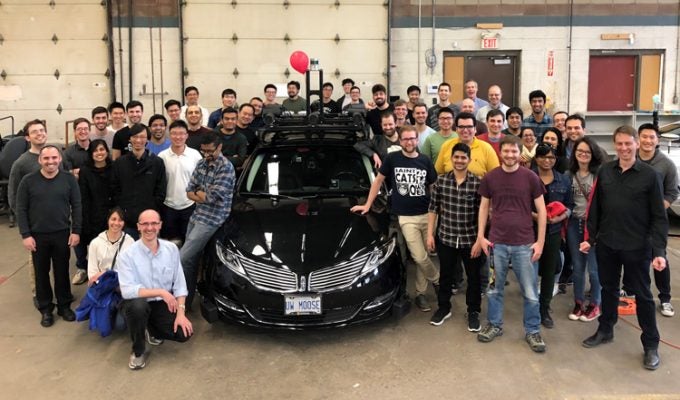
Researchers at the University of Waterloo reached an important milestone this summer by logging their 100th kilometre on public roads in a self-driving car.
Recorded in an industrial area of Waterloo, it was the culmination of almost two years of work since the research team won approval from the Ontario government to do on-road testing in an autonomous vehicle pilot program.
“We’re pulling this off and 100 kilometres is symbolic of that,” says Krzysztof Czarnecki, co-lead of more than 60 professors, engineers, researchers and graduate students working on the project. “It’s a number you can’t reach without having a robust system.”
The research team also showed off its progress in October by giving demonstration rides to more than 100 guests from the media, the University and industry partners at a test track in Waterloo
Autonomoose, the modified Lincoln MKZ hybrid sedan at the heart of the initiative, completed several complex manoeuvres on its own after the driver behind the wheel turned over control to its self-driving systems.
That included identifying and avoiding hay bales set up as an obstacle, stopping for a parked car in its lane and negotiating a left turn at an intersection after yielding to an oncoming vehicle.
To make such manoeuvres possible, Autonomoose is equipped with nine cameras, LiDAR and radar scanners, and other sensory devices that gather data for processing by sophisticated on-board computer software.